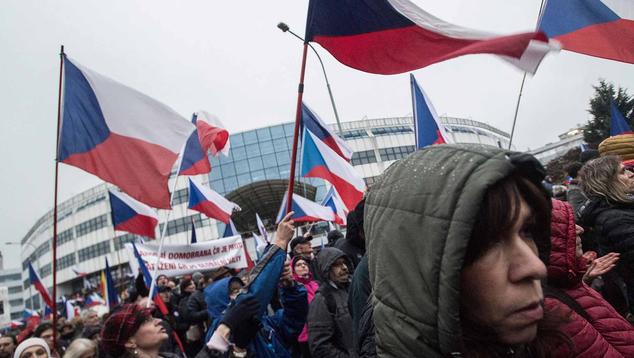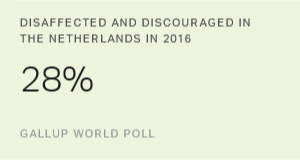WASHINGTON, D.C. -- The Czech Republic’s presidential election this weekend is the first of several political showdowns in Central Europe this year that could either stem the tide of populism or turn it into a flood.
As Czechs prepare to replace longtime populist President Milos Zeman, Gallup surveys in 2022 suggest many are ready for some type of change.
The data show Czechs are more aligned with the European Union and NATO than they have been in years and view Russia with disdain. Further, Czechs are largely dissatisfied with their country’s leadership and view their government as rife with corruption.
Quick Summary: Three candidates have a good chance of becoming the country’s second popularly elected president, which is largely a ceremonial role: Andrej Babis, Danuse Nerudova and Petr Pavel. None of the three is expected to garner enough votes in the first round of the election, so the top two vote-getters are likely to face each other in a runoff later in January.
Media owner and former Prime Minister Babis is a familiar face to Czech voters. Like his political ally Zeman, Babis is a populist politician. While the controversial oligarch was acquitted of fraud mere days before the election, Babis still carries the baggage of being ousted as prime minister in the 2021 general election.
Babis’ main two opponents, Nerudova and Pavel, represent vastly different views on foreign policy, are pro-EU and are anti-authoritarian. Pavel, a career soldier and former chairman of NATO’s military committee, is promising to “restore order and peace” to his country. Economist Nerudova has been campaigning for her vision of change, modernization and capitalism.
Czechs Warm to EU, Grow Cold on Russia: Months before protests erupted last fall, with thousands of Czechs rallying both for and against the EU, NATO and their government’s support for Ukraine, Czechs’ approval of EU leadership was at one of its highest levels to date, and the majority approved of NATO.
Czechs have been gradually warming to EU leadership since 2018. In 2022, nearly half of Czechs (49%) approved of the leadership of the EU, likely nudged slightly higher last year, given that the Czech Republic held the six-month rotating presidency of the EU. Czechs viewed NATO even more positively, with 61% approving of the alliance’s leadership.
Although far-right protesters rallied against NATO and the EU and appealed for direct talks with Russia about gas supplies, a scant few Czechs approve of Russia’s leadership. In the wake of Russia’s invasion of Ukraine, Czechs’ approval of Russia’s leadership dropped to a record low of 5%.
High Corruption, Low Confidence in Leadership: While Babis’ fraud acquittal may help him in the election, for years, the majority of Czechs have viewed corruption as widespread throughout their government -- including under his previous watch.
In 2022, nearly three in four (74%) Czechs said corruption is endemic in their government -- which is fairly typical for attitudes over the past decade. Since 2009, the percentage of Czechs who have viewed government graft as widespread has dropped below 70% just once: in 2018, when it fell to 67%.
While Czechs were slightly more approving of their country’s leadership in 2022 than they were in 2020 or 2021, the 33% who approved last year is not a ringing endorsement, and suggests the public is primed for change.
Despite their low confidence in their leadership and belief that there is widespread corruption, most Czechs still believe in the overall political process. When asked about the honesty of elections, nearly two in three (65%) said they are confident in their country’s electoral process.
Bottom Line
The presidential election in the Czech Republic will allow Czechs to make a statement for their government to move toward maturing European liberal democratic politics or, if they prefer, populist, nationalist and authoritarian politics. Additionally, while the Czech president does not hold executive powers, the president can help or hurt the current government’s agenda -- in particular, the Czech Republic’s pro-Ukrainian stance after the Russian invasion.
To stay up to date with the latest Gallup News insights and updates, follow us on Twitter.
For complete methodology and specific survey dates, please review Gallup's Country Data Set details.
Learn more about how the Gallup World Poll works.




